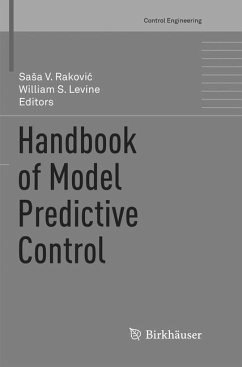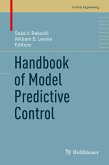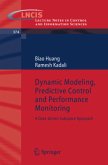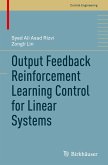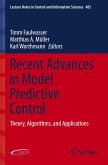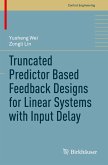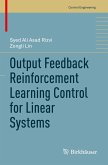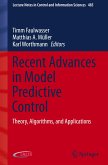Recent developments in model-predictive control promise remarkable opportunities for designing multi-input, multi-output control systems and improving the control of single-input, single-output systems. This volume provides a definitive survey of the latest model-predictive control methods available to engineers and scientists today.
The initial set of chapters present various methods for managing uncertainty in systems, including stochastic model-predictive control. With the advent of affordable and fast computation, control engineers now need to think about using "computationally intensive controls," so the second part of this book addresses the solution of optimization problems in "real" time for model-predictive control. The theory and applications of control theory often influence each other, so the last section of Handbook of Model Predictive Control rounds out the book with representative applications to automobiles, healthcare, robotics, and finance.
The chapters in this volume will be useful to working engineers, scientists, and mathematicians, as well as students and faculty interested in the progression of control theory. Future developments in MPC will no doubt build from concepts demonstrated in this book and anyone with an interest in MPC will find fruitful information and suggestions for additional reading.
The initial set of chapters present various methods for managing uncertainty in systems, including stochastic model-predictive control. With the advent of affordable and fast computation, control engineers now need to think about using "computationally intensive controls," so the second part of this book addresses the solution of optimization problems in "real" time for model-predictive control. The theory and applications of control theory often influence each other, so the last section of Handbook of Model Predictive Control rounds out the book with representative applications to automobiles, healthcare, robotics, and finance.
The chapters in this volume will be useful to working engineers, scientists, and mathematicians, as well as students and faculty interested in the progression of control theory. Future developments in MPC will no doubt build from concepts demonstrated in this book and anyone with an interest in MPC will find fruitful information and suggestions for additional reading.
"This handbook is designed for a wide audience. It is an excellent reference for graduate students, researchers, and practitioners in the field of control systems and numerical optimization who want to understand the potential, challenges, and benefits of MPC and its applications. ... This handbook enables the reader to gain a panoramic viewpoint of MPC theory and practice as well as provides a state-of-the-art overview of new and exciting areas of application at the forefront of MPC research." (Gabriele Pannocchia, IEEE Control Systems Magazine, Vol. 40 (5), October, 2020)

